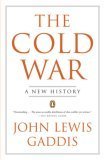More on this book
Community
Kindle Notes & Highlights
89 If by no means “impotent,” certain categories of nuclear weapons had surely become “obsolete.” It was Reagan, more than anyone else, who made that happen.
When Reagan visited the Soviet Union in May, 1988, Gorbachev arranged for him to lecture at Moscow State University on the virtues of market capitalism. From beneath a huge bust of Lenin, the president evoked computer chips, rock stars, movies, and the “irresistible power of unarmed truth.” The students gave him a standing ovation.
The reason, it is now clear, is that the Brezhnev Doctrine had died when the Politburo decided, six years earlier, against invading Poland.
Even as the celebrations were taking place, another revolution in Eastern Europe was sweeping away a somewhat newer idea: that governments could base their legitimacy on an ideology that claimed to know the direction of history.
What no one understood, at the beginning of 1989, was that the Soviet Union, its empire, its ideology—and therefore the Cold War itself—was a sandpile ready to slide. All it took to make that happen were a few more grains of sand.
In both its ends and its means, then, this revolution became a triumph of hope. It did so chiefly because Mikhail Gorbachev chose not to act, but rather to be acted upon.
Then, on the grounds that the barrier was obsolete and hence a health hazard, he ordered the guards to begin dismantling it. The East Germans, alarmed, protested to Moscow, but the surprising word came back: “We can’t do anything about it.”
“This is entirely a matter to be decided by Poland,” one of Gorbachev’s top aides commented.
And so on August 24, 1989, the first non-communist government in postwar Eastern Europe formally took power.
The new prime minister, Tadeusz Mazowiecki, was sufficiently shaken by what had happened that he fainted durin...
This highlight has been truncated due to consecutive passage length restrictions.
How many people died as the army took back the square and the streets surrounding it is still not clear, but the toll was several times greater than that for the entire year of revolutionary upheavals in Europe. 15
All of this seemed to suggest that Honecker had the German Democratic Republic under control—until the regime noticed that an unusually large number of its citizens were taking their summer vacations in Hungary.
By September, there were 130,000 East Germans in Hungary and the government announced that, for “humanitarian” reasons, it would not try to stop their emigration to the West.
During the parade down the Unter den Linden the marchers abandoned the approved slogans and began shouting, “Gorby, help us! Gorby, stay here!” Watching from the reviewing platform next to an ashen Honecker, Gorbachev could see that [t]hese were specially chosen young people, strong and goodlooking. . . . [Jaruzelski], the Polish leader, came up to us and said, “Do you understand German?” I said, “I do, a little bit.” “Can you hear?” I said, “I can.” He said, “This is the end.” And that was the end: The regime was doomed.
Gorbachev’s response was equally significant, both for what he did and did not say. He welcomed the United States as a European power, something no Soviet leader had explicitly done before. And his silence on Germany suggested ambivalence: that too was an unprecedented position for a regime that had sought reunification after World War II only if all of Germany could be Marxist, and when that proved impossible had committed itself to keeping Germany permanently divided.
the East Germans themselves—having broken through the wall—quickly made it clear that they would accept nothing less than reunification.
Was it better, Machiavelli once asked, for a prince to be loved or feared?40 Unlike any of his predecessors, Gorbachev chose love and mostly attained it—but only outside his own country.
The contrast could not be missed, because for all of his talk of democracy Gorbachev had never subjected himself to a popular vote.
Gorbachev was never a leader in the manner of Václav Havel, John Paul II, Deng Xiaoping, Margaret Thatcher, Ronald Reagan, Lech Wałęsa—even Boris Yeltsin. They all had destinations in mind and maps for reaching them. Gorbachev dithered in contradictions without resolving them. The largest was this: he wanted to save socialism, but he would not use force to do so.
made little sense in traditional geopolitical terms. But it did make him the most deserving recipient ever of the Nobel Peace Prize.
the recent past is bound to look different when viewed through the binoculars of a distant future.
Like the barbed wire along the Hungarian border, war itself—at least major wars fought between major states—had become a health hazard, and therefore an anachronism.5
The Cold War may well be remembered, then, as the point at which military strength, a defining characteristic of “power” itself for the past five centuries, ceased to be that.
A second escape from determinism involved the discrediting of dictatorships.
Meanwhile, communism had promised a better life but failed to deliver.
the world came closer than ever before to reaching a consensus, during the Cold War, that only democracy confers legitimacy.
Still, for all of this and a great deal more, the Cold War could have been worse—much worse.


